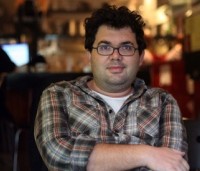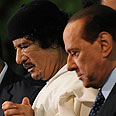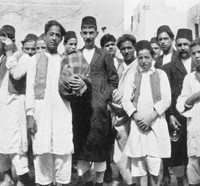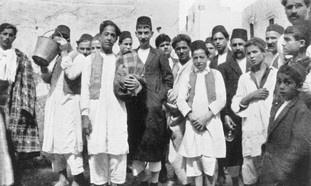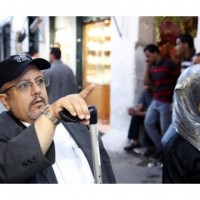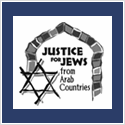Posted on 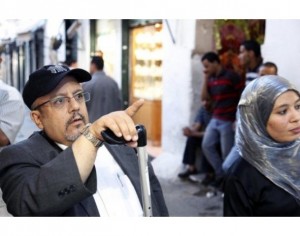
Radio Netherlands Worldwide - August 8th, 2010
For more than 40 years, Raphael Luzon dreamed of returning to his birthplace in Libya. But the obstacles in his way were huge and it took years of patient lobbying before that dream was finally realised. Together with his sister and 86-year-old mother, Mr Luzon returned to the village of Benghazi recently for a reunion with loved ones that was, he told us, a mixture of tears and laughter.
By Louise Dunne
Raphael Luzon is a Libyan Jew and he was 13 when he was driven out of the country in the aftermath of the 1967 Arab-Israeli war. Forced to leave everything behind, he and his family found asylum in Italy and now live in Britain where Mr Luzon is chairman of the Jewish Libyan Community in the UK.
Riots
Libya's Jewish population, originally numbering tens of thousands, shrank in the face of growing anti-Semitism after the founding of Israel in 1948. Most of the estimated 7,000 remaining Jews were evacuated after violent riots in 1967. Mr Luzon's uncle and aunt and their six children were shot by an army officer in the rioting, but despite the violence Mr Luzon and the community he represents are still, he says, Libyans who cherish the land of their birth.
"Everyone is really in love with Libya. Also myself, I have no sentiment of revenge or spirit of hatred. Absolutely not. What happened, it happened. It happens everywhere in the world. Jews have been killed, Arabs have been killed, Palestinians have been killed. Unfortunately war does not recognise any difference between religions, between races, between nothing."
Exile
Libya's Jews in exile were banned from visiting their country and it took years of work and lobbying on Mr Luzon's part before he was given permission to make last month's visit. And when permission did come, it came with a speed that left him stunned.
"Ten years ago I started a sort of dialogue with the Libyan government and they appreciate very much that despite what happened to me and my family, I never spoke badly about Libya. And then last week I received a sudden phone call... from the Libyan consul here. And in two hours I get home with a sort of realisation of a dream. Because I came back with my passport with all the visas and two days after I was on the flight to Libya."
Homeland
Mr Luzon's mother was determined to see her homeland again "before leaving this world", he says, and joined him on the journey back to the village of Benghazi, some 1,000 kilometres east of the capital Tripoli.
"It was very, very emotional, for her, for every one of us. We had a very, very emotional meeting with another family who were very close to us. We didn't see each other for the last 40 years. So you can imagine, last time I saw these friends they were my age, 13 or 14-years-old and now everyone of them is over 50. So it was very emotional, very nice. Everyone cried and laughed at the same time."
Dream
Mr Luzon also met with several government officials during his visit and hopes now to help realise the same dream for other Libyan Jews. He's optimistic that within a month he'll be able to accompany small groups of Jewish exiles on a visit back to their Libyan homeland. And his dreams don't stop there. He's an idealist who believes in the possibility of reconciliation between Muslims and Jews. For 1,400 years, he says, the communities were at peace and with dialogue and goodwill that could be possible again.
"I hope to renew, me and other people like me, what was the Golden Era. For 1,400 years Jews and Muslims lived very nicely together and I hope that we will renew this and that people thinking like me will overcome the other people that like war."
December 1, 2010
